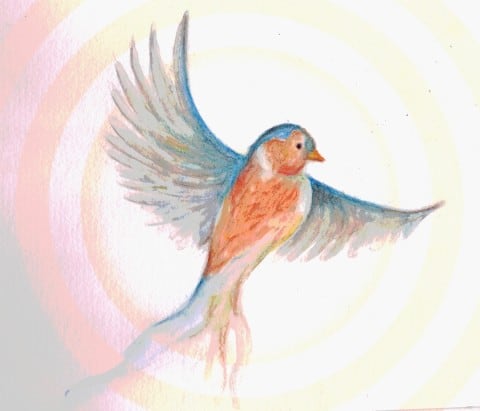The world may have lost half of the songbirds that filled its skies just 40 years ago. SongbirdSOS hopes to shed light on the destructive forces that impact these songbird habitats.
SongbirdSOS, a documentary which will be airing on CBC’s The Nature of Things on March 19, is directed by Su Rynard and produced by Joanne Jackson and Diane Woods. The trio hope to bring awareness to the disappearance of songbird species through this beautifully shot and thought-provoking film.
SongbirdSOS explores research and perspectives on avian migration and habitats from specialists around the globe and will feature a uniquely prairie outlook on the issue from Christy Morrissey, an ecotoxicologist and assistant professor of biology at the University of Saskatchewan.
Morrissey’s field of study lies chiefly in the impact of insecticides and pesticides on prairie wetlands.
“I’m often looking at the impacts of various contaminants,” said Morrissey. “Not just pesticides, but many endocrine-disrupting chemicals and industrial pollutants’ effects on bird migration specifically.”
Roughly 21 million acres of canola are planted in the prairies every year and almost every plant is treated with neonicotinoids, a chemical that affects insects’ nervous systems and causes paralysis and death. These chemicals are widely used by North American farmers as a quick and convenient way to keep insects away from their crops, and have been linked to the death of honeybees.
“One of the key issues right now is agriculture and how it’s done in Canada, specifically in Saskatchewan and the Prairies,” said Morrissey. “We’re moving towards using chemicals on all fields all the time through the use of feed treatments. The key things we need to evaluate are how much of the fields need to be treated with insecticides and other chemicals based on pest problems rather than convenience.”
Birds often absorb a toxic amount of these pesticides by consuming the seeds of chemically treated plants. The chemicals are also water-soluble and may be seeping into the wetlands, disrupting the food chain by killing the insects that prairie songbirds rely on as a food source.
There are hundreds of species of songbirds in Saskatchewan, but Morrissey’s field of study is primarily concerned with birds that are impacted the most, such as swallows and swifts, by the decline in insects cause by pesticides.
“That’s the group that seems to be declining most rapidly in Canada and across North America,” said Morrissey. “The common thread between them is not where they live and not their breeding biology or where they winter, but rather that they eat insects. That’s why we’re studying that group and of course why we’re studying pesticides and in particular insecticides that are designed to kill insects.”
SongbirdSOS urges its viewers to consider the effects of pollutants on the environment and become aware of ways in which they can contribute to the conservation of bird habitats.
Morrissey believes that people can get involved in this issue simply by becoming more knowledgeable about where their food comes from. Students in particular are more likely to buy cheap produce than the more expensive produce that is farmed without the overuse of pesticides.
“I think students should become aware of where their food comes from and should be asking questions about that,” said Morrissey. “What the origin is of their food, how it’s grown, where it’s grown and what kind of impact having cheap produce is having on the environment.”
SongbirdSOS hopes to open people’s eyes to the world of the birds that we often take for granted. Though we may be enchanted by the beauty of their song, the vast majority of us can’t even imagine that there may be a day when their voices fall silent.
Songbirds “are an indicator of what’s happening around the world in terms of environmental change. They’re a visible signal to the problems that are occurring. People should take notice of their environment and what the birds are telling us,” said Morrissey.
SongbirdSOS will be airing on CBC at 8 p.m. on March 19. Visit their website at songbirdsos.com for more information or to donate to their Indiegogo campaign.
—
Image: Chrissy Czajkowski